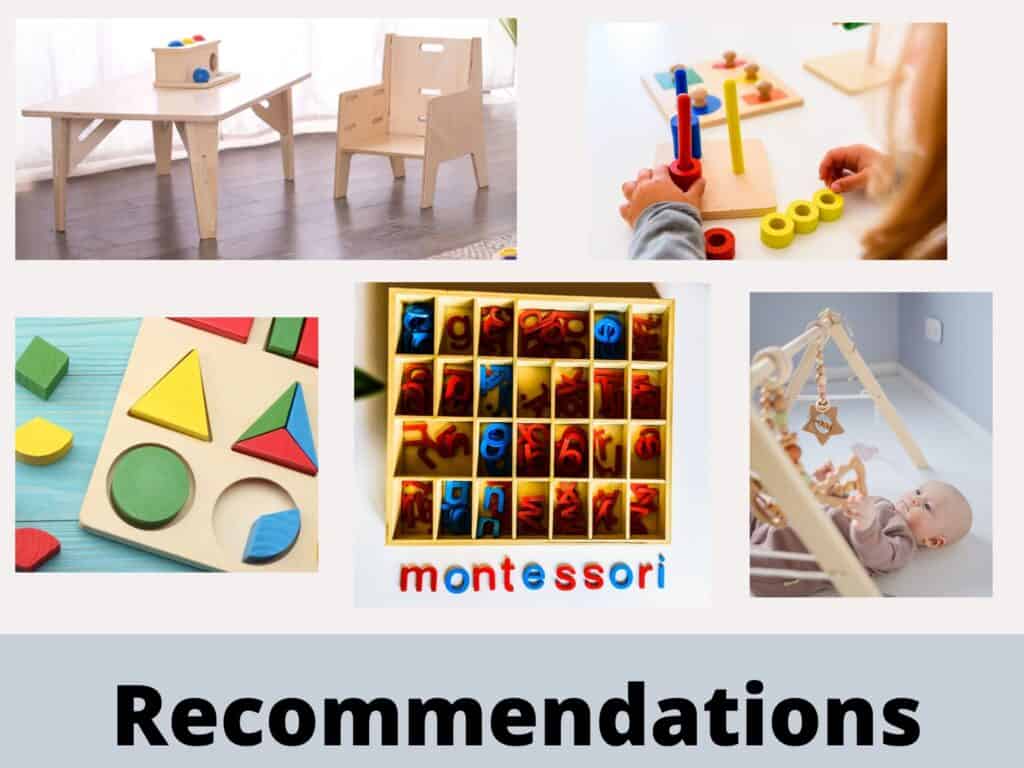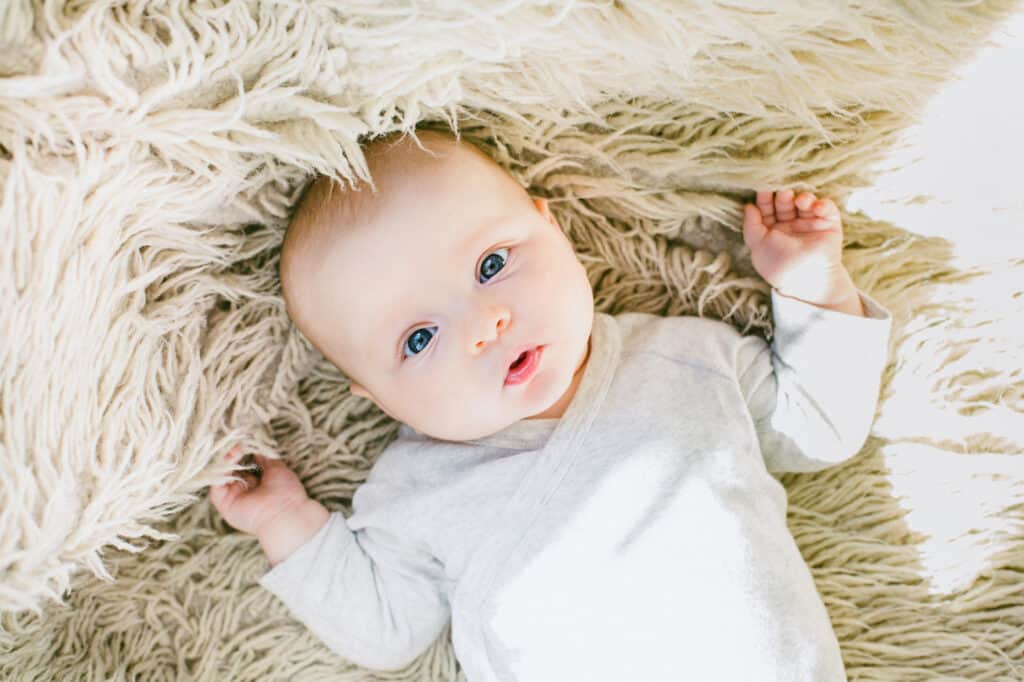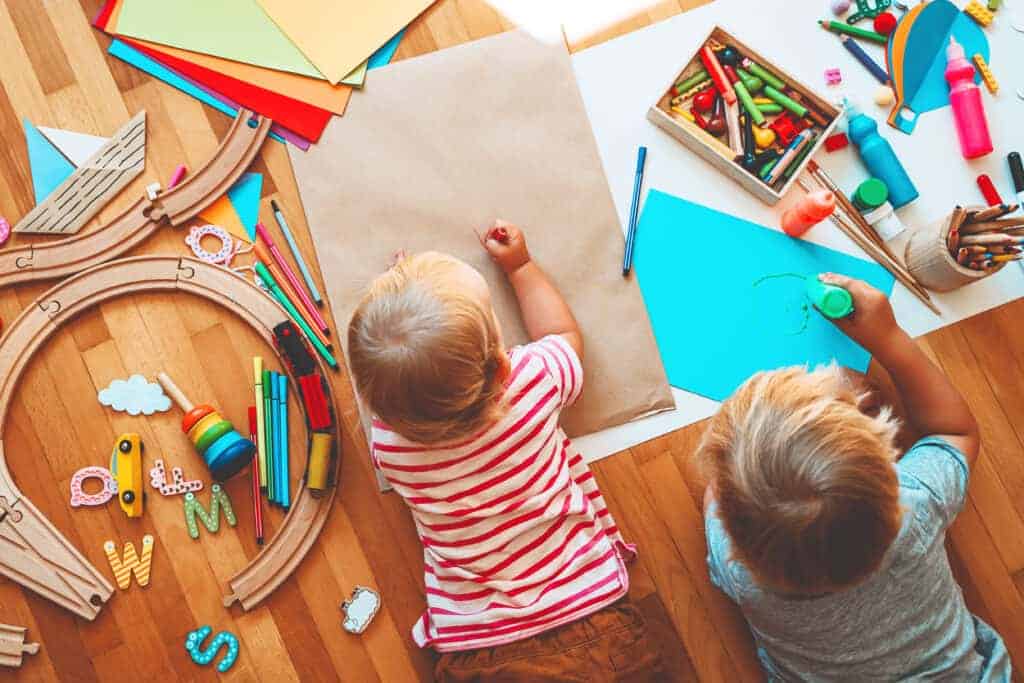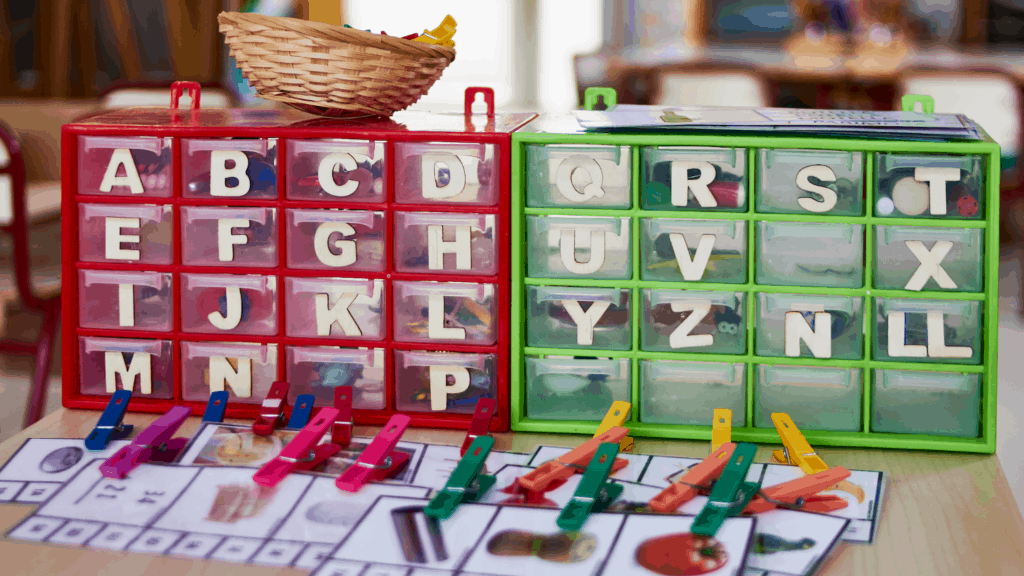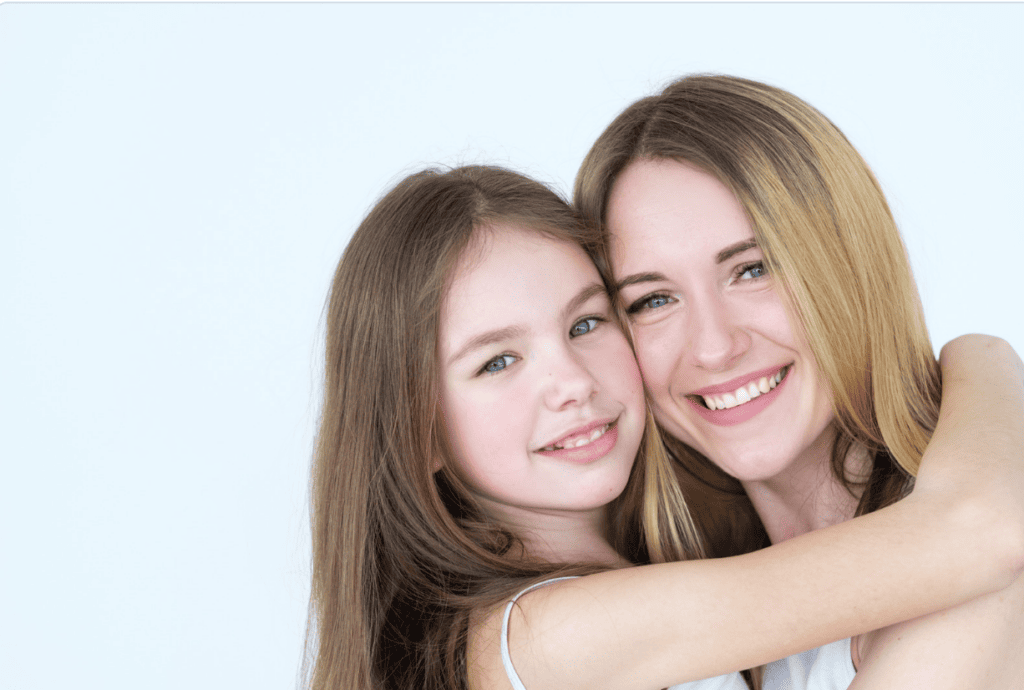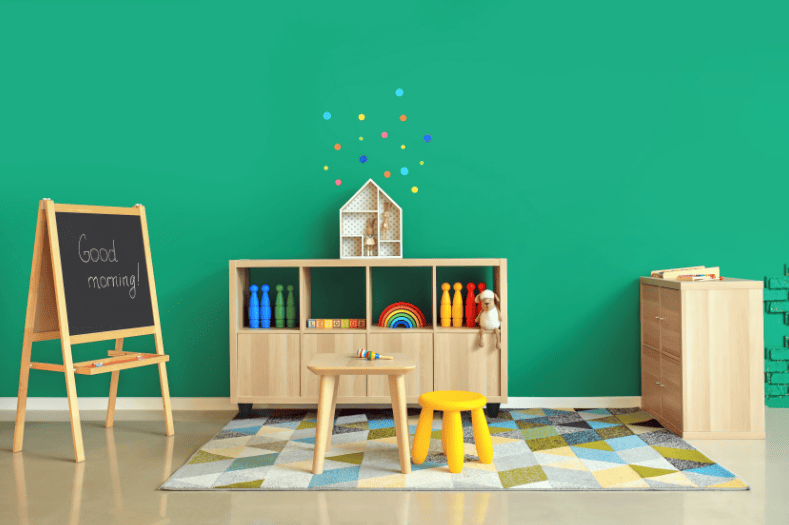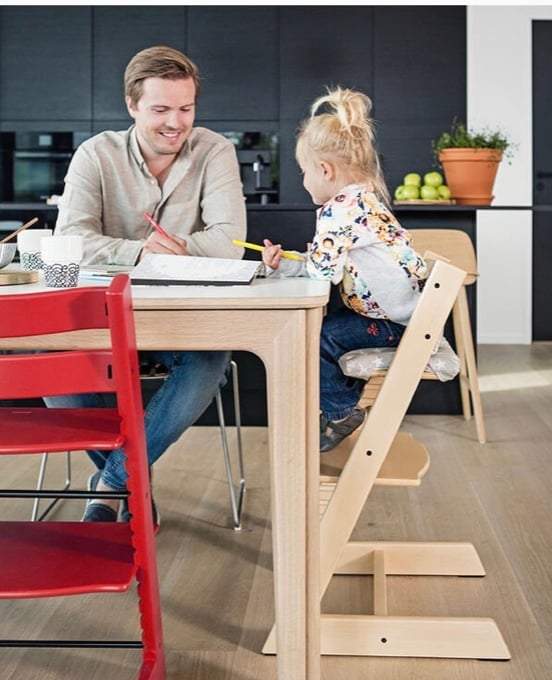As a parent or educator, you may have heard of
A
But how can you help infants learn when they haven’t yet developed the skills to communicate and understand instruction?
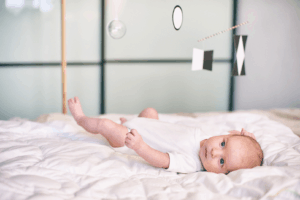
What does Montessori play for babies look like?
Montessori for babies allows infants to explore their environments, learn kinesthetically, and develop a sense of independence. Because babies learn by exploring with their five senses, activities for
Toys for babies are often brightly-colored or in contrasting colors like black and white. Simple, color-contrasting board books, rainbow-colored stacking cups, and colorful flashcards are great examples of this. Babies are hands-on learners and
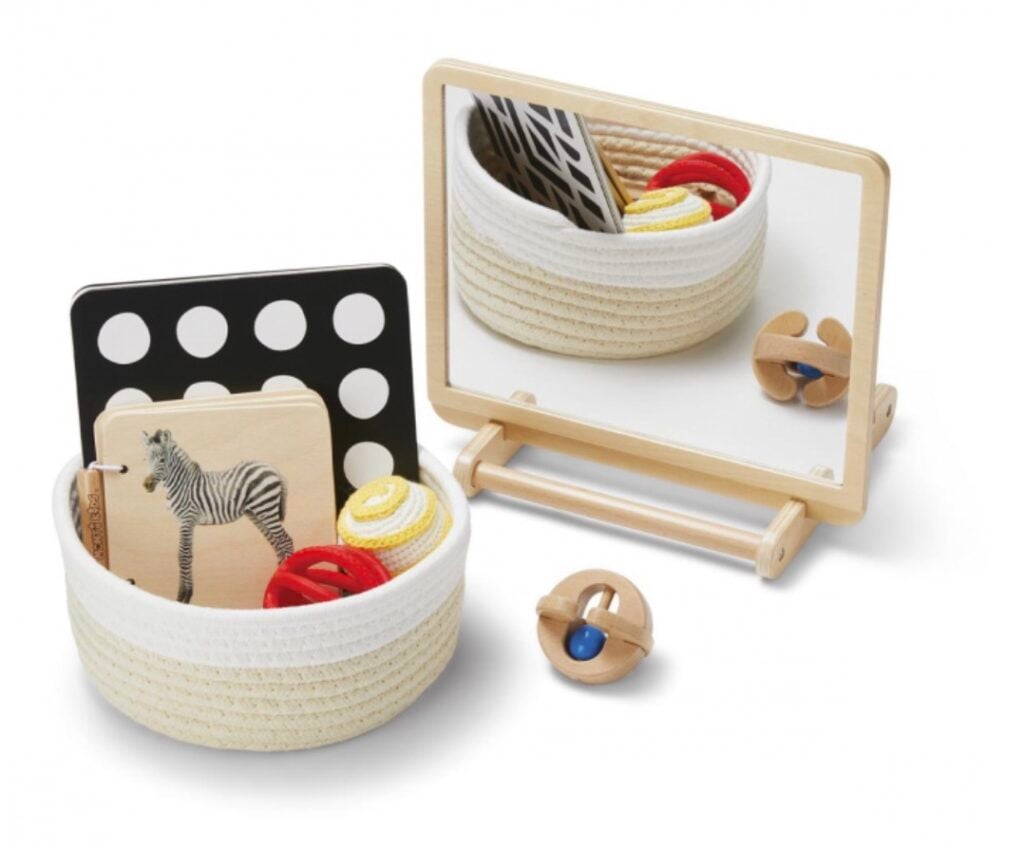
Montessori for Today picks out furniture, educational tools, toys and lifestyle items that we think are the best and most exciting, based on independent research and careful consideration. On some occasions we earn revenue (at no additional cost to you) if you click the links and buy the products. But this doesn’t affect what we choose to highlight and we will never let it bias our coverage.
Learning materials should be as interactive as possible for infants yet simple enough to allow easy, independent play. Toys with screens, flashing lights, and batteries are discouraged because they allow for passive play with less child interaction. Since babies learn through oral exploration, all toys should be safe for baby to mouth- there should be no small pieces and quality materials such as wood are preferred over plastic.
See Also: Montessori Gift Ideas for Babies – Our Favorite Toys for Infants 0 – 12 Months
What do you need for a Montessori baby?
If you want a convenient introduction to
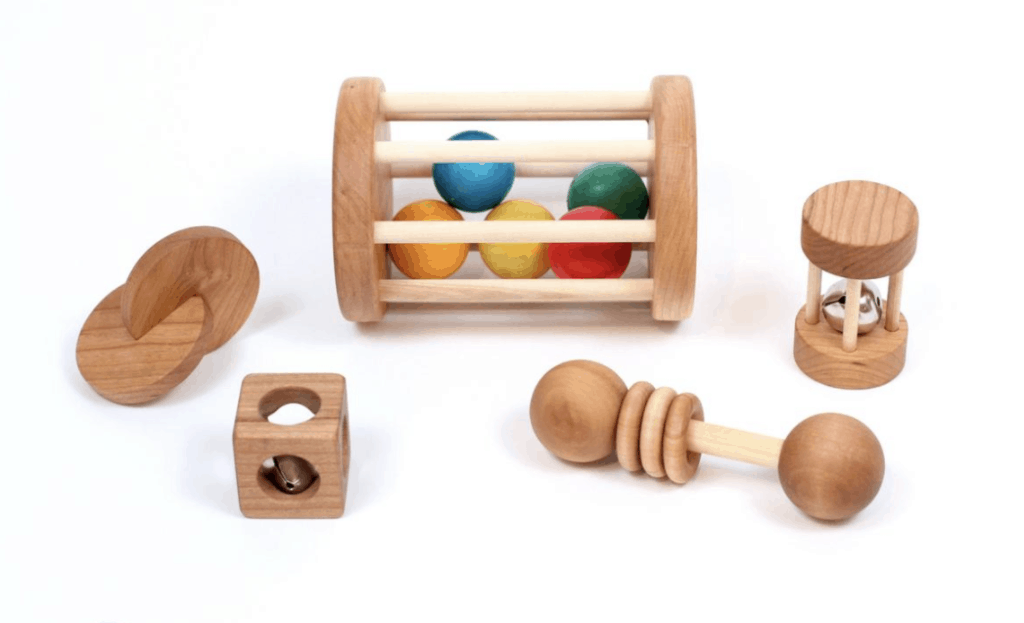
But
If your baby is unable to sit up independently, set up a play mobile over your child and attach different items that will stimulate your baby’s senses. For example, items with different colors, textures (furry plush toys, sticky rubber items, and hard wooden rings), and sounds (bells, rattles, crinkly foil). Just make sure all items are within your baby’s reach so he or she can properly interact with them! Since “auto-education” is an important pillar of
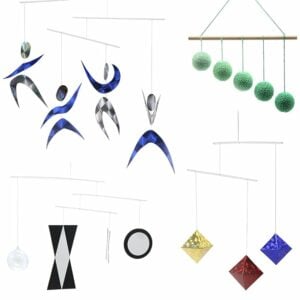
Another important pillar of
- Folding laundry? Let your baby crawl through the clean laundry and explore the different colors and fabrics of your clothes.
- Cooking? Let your older baby pour, scoop, or mix ingredients when you can.
- Washing dishes? Give your baby a small tub of water and some non-breakable kitchenware. Since small children learn through imitation, don’t be surprised if your child begins “washing” his or her dishes, too!
Practical activities like these help educate the “whole child” by teaching them about daily life and setting them up for skills they will use in the many years to come.
Why begin Montessori education early?
Simply put, learning begins at birth. Parents and caregivers need to begin providing the most enriching experience they can for their children as soon as possible.
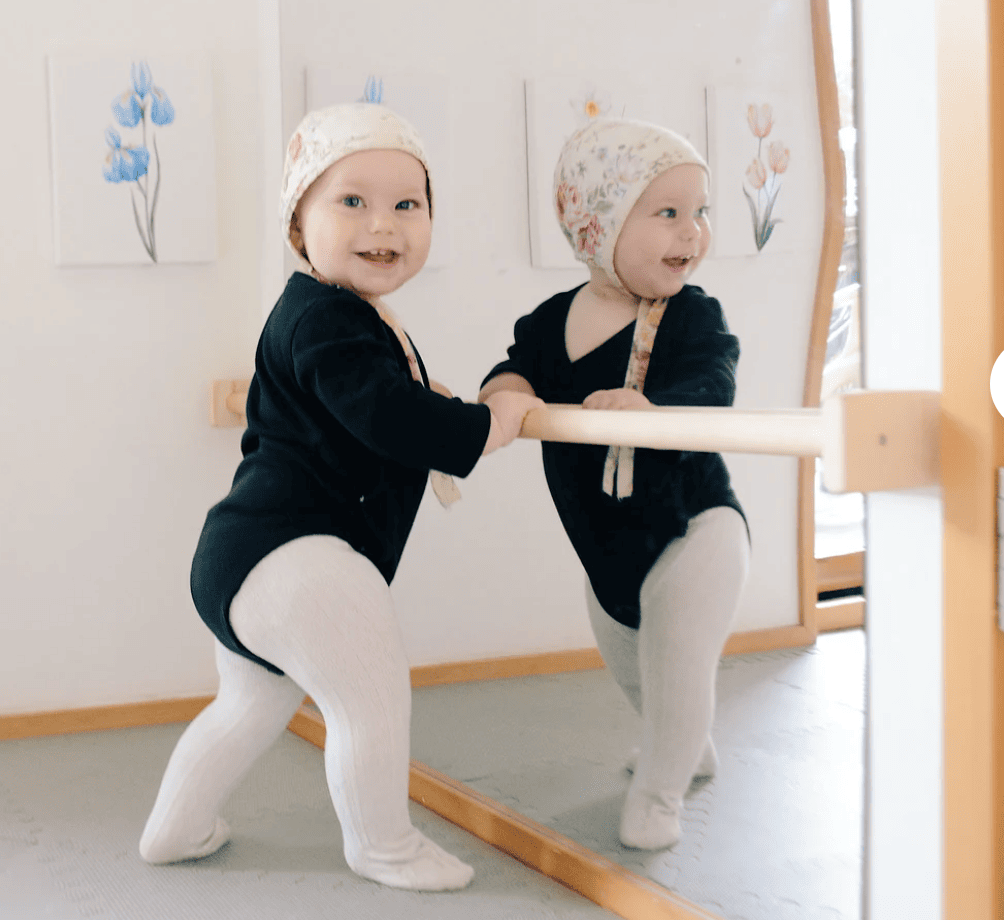
Sensitive periods begin at a child’s birth and areas of sensitivity for infants include movement, language acquisition, and early mathematics (such as counting, quantities, addition, subtraction, and basic shapes). The earlier a child is exposed to such subjects, the better and sooner he or she will be able to understand them.
Dr. Maria
Is the Montessori Method right for my baby?
As a parent or caregiver, you know your family best. There are a wide variety of educational and child-rearing choices you can make and most parents make the best choices they can with the resources they have.
The
